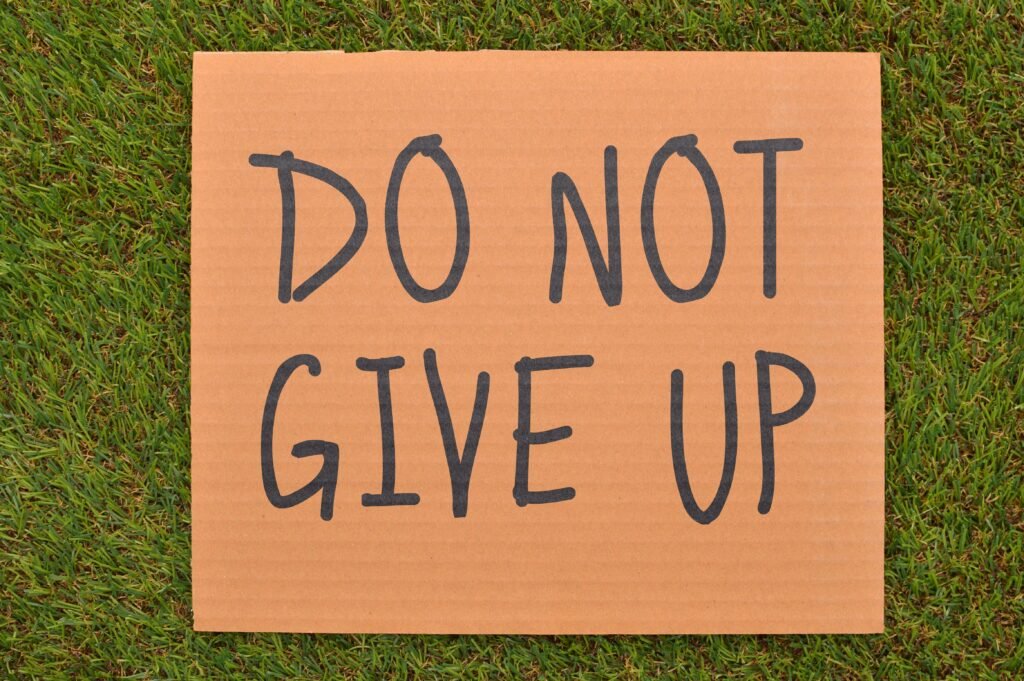
Introduction to Self Improvement
Self improvement is an ongoing journey that encourages you to take deliberate steps toward becoming the best version of yourself.
It involves actively seeking ways to enhance various aspects of your life, whether it’s your career, relationships, health, or personal growth.
By focusing on self improvement, you set a foundation for achieving your goals and living a more fulfilling life.
One example of self improvement is working on your communication skills.
Whether in a professional setting or personal relationships, being able to express yourself clearly and listen effectively can lead to better understanding and cooperation.
You might start by reading books or taking courses on communication, then practicing what you’ve learned in everyday interactions.
Another area to consider is your physical health. Many people set goals to improve their fitness, whether through regular exercise, better nutrition, or adopting healthier habits.
For instance, if you aim to run a marathon, you might begin with short, manageable runs and gradually increase your distance and endurance over time.
By setting small, achievable milestones, you can steadily work toward your larger fitness goals.
Mental well-being is another crucial aspect of self improvement.
Techniques such as mindfulness meditation, journaling, or even seeking therapy can significantly enhance your mental health.
By taking the time to understand and manage your thoughts and emotions, you create a more balanced and resilient mindset.
Additionally, self improvement often involves learning new skills.
Whether it’s picking up a new language, mastering a musical instrument, or diving into a new area of study, continuous learning keeps your mind sharp and opens up new opportunities.
For example, many people find online courses or workshops valuable for gaining new knowledge and skills that can be applied in both personal and professional contexts.
Financial management is another critical component of self improvement.
By learning how to budget, save, and invest wisely, you can achieve greater financial stability and independence.
This might involve setting up a savings plan, reducing unnecessary expenses, or consulting with a financial advisor to create a long-term strategy.
Overall, self improvement is about making conscious, intentional choices that align with your values and aspirations.
It’s a dynamic process that requires commitment, but the rewards—greater satisfaction, improved relationships, and a more meaningful life—are well worth the effort.
As you embark on this journey, remember that every small step forward is a step toward a better, more enriched version of yourself.
Setting Clear Goals

Setting clear and achievable goals is a crucial first step in the process of self improvement. When goals are specific and attainable, they can significantly influence your success.
Research has shown that setting goals is a central element in psychotherapies like Cognitive Behavioral Therapy (CBT) used to address issues such as depression.
Engaging in structured goal-setting sessions can also positively impact your subjective wellbeing according to studies that observed this effect after just a few hours of focused goal-setting activities.
In your personal life, you might set a goal to improve your physical fitness by running three times a week.
Professionally, you might aim to complete a certification program to enhance your career prospects.
Whatever your goals, being clear about them is the first step toward achievement.
Building Healthy Habits

Building healthy habits is key to making lasting changes in your self improvement journey.
It’s about integrating small, consistent actions into your daily routine that support your larger goals.
Think of habits as the building blocks that, over time, construct a more fulfilling and productive life.
Start with one habit at a time.
For example, if you want to improve your physical health, you might begin with a simple daily walk.
Choose a specific time each day and stick to it. Over time, this small act can evolve into a broader exercise routine.
The key is consistency. By embedding these actions into your daily schedule, they become second nature.
Another effective habit is maintaining a balanced diet. Instead of overhauling your entire eating plan at once, start with manageable changes.
Maybe you can commit to eating a healthy breakfast every morning or incorporating more vegetables into your lunch.
Gradually, these small steps can lead to more significant dietary improvements.
It’s not about perfection but about making better choices more often.
Mindfulness practices, such as meditation or deep-breathing exercises, can also be powerful habits for self improvement.
Even a few minutes each day can help reduce stress and enhance your mental clarity.
Set aside a specific time, perhaps in the morning or before bed, to practice mindfulness.
These moments of calm can help center your thoughts and improve your overall mental well-being.
Sleep is another critical area.
Developing a consistent sleep routine can significantly impact your energy levels and productivity.
Try going to bed and waking up at the same time every day, even on weekends.
This helps regulate your body’s internal clock, leading to better sleep quality.
Avoiding screens before bedtime and creating a relaxing pre-sleep routine can further enhance your rest.
Journaling is a habit that supports both mental and emotional health.
It provides a space to reflect on your day, set intentions, and track progress.
You don’t need to write pages each time; even a few sentences can be incredibly beneficial.
Over time, this practice can offer insights into your thoughts and behaviors, helping you to understand yourself better.
Lastly, fostering social connections can enrich your life.
Regularly reaching out to friends or family, joining clubs or groups, and being active in your community can provide emotional support and increase your sense of belonging.
These connections can also serve as a source of motivation and accountability in your self improvement efforts.
By incorporating these healthy habits into your daily life, you create a solid foundation for continuous personal growth.
Each small action, repeated consistently, can lead to significant, positive changes over time.
Overcoming Obstacles

Facing challenges is a natural part of the self improvement journey.
Procrastination, lack of motivation, and fear of failure are common barriers that many people encounter.
The key to overcoming these obstacles is to approach them with practical strategies and a resilient mindset.
One effective way to combat procrastination is to break tasks into smaller, manageable steps.
Instead of viewing a project as one large, daunting task, divide it into bite-sized pieces.
For instance, if you’re working on a lengthy report, start by outlining the main sections, then tackle each part one by one.
This approach not only makes the task seem less overwhelming but also provides a sense of accomplishment as you complete each segment.
Lack of motivation can be another significant hurdle.
To stay motivated, it’s helpful to set both short-term and long-term goals.
Short-term goals offer immediate rewards and keep you engaged, while long-term goals give you a clear vision of what you’re working towards.
For example, if your goal is to learn a new language, setting a short-term goal of mastering basic vocabulary can keep you motivated while you work towards the long-term goal of fluency.
Fear of failure is another common barrier that can halt progress.
It’s important to reframe your perspective on failure.
Instead of seeing it as a negative outcome, view it as a learning opportunity.
Every setback provides valuable lessons that can guide you toward future success.
Embracing this mindset allows you to move forward with less fear and more confidence.
In addition to these strategies, maintaining flexibility is crucial.
Life is unpredictable, and unexpected challenges can arise at any moment.
Adapting to changes and being open to new approaches can help you navigate these obstacles more effectively.
For example, if a planned workout routine is disrupted by weather, having an indoor alternative ready can keep you on track.
Another useful strategy is to seek accountability.
Share your goals and progress with a trusted friend or mentor who can provide encouragement and hold you accountable.
Regular check-ins can help you stay focused and committed, and they offer an opportunity to discuss any challenges you’re facing.
Finally, practicing self-compassion is essential.
Be kind to yourself during this journey. Recognize that everyone faces setbacks and that they don’t define your worth or capabilities.
Treat yourself with the same kindness and understanding that you would offer a friend in a similar situation.
This compassionate approach fosters resilience and keeps you moving forward, even when the going gets tough.
Seeking Support and Resources

Connecting with supportive individuals and accessing valuable resources can significantly enhance your journey of personal development.
Mentors and coaches, for instance, offer essential guidance that helps you navigate obstacles and stay focused on your goals.
Their insights, drawn from their own experiences, can provide you with practical advice and motivation.
Books are another excellent resource for self improvement.
One highly recommended read is “Can’t Hurt Me” by David Goggins.
This book not only offers inspiration but also practical strategies for overcoming personal and professional challenges.
Goggins’ story of resilience and mental toughness serves as a powerful reminder that you can achieve great things with the right mindset and effort.
Online platforms such as sblink also offer valuable opportunities for learning and connecting with others who share similar aspirations.
These platforms provide courses, webinars, and forums where you can gain new knowledge and skills while interacting with a community of like-minded individuals.
Engaging in these communities can foster a sense of belonging and provide a support network that helps keep you accountable.
Studies have shown that people who set goals are more likely to seek out resources for mental health, emphasizing the importance of external support according to research by Weinberger, Mateo, and Sirey.
This underscores the value of tapping into available resources to support your self improvement efforts.
In addition to books and online platforms, local community resources can also be beneficial.
Workshops, seminars, and support groups often provide opportunities to learn new skills, share experiences, and receive encouragement from others who are on similar paths.
Libraries, community centers, and educational institutions frequently offer these types of events and can be valuable places to seek information and support.
Another excellent resource is professional therapy or counseling.
Mental health professionals can provide personalized guidance and strategies tailored to your specific needs.
Whether you’re dealing with stress, anxiety, or seeking to enhance your overall well-being, therapy can be a vital component of your self improvement journey.
Lastly, don’t underestimate the power of your social network.
Friends, family, and colleagues can offer emotional support, practical advice, and motivation.
Sharing your goals and progress with trusted individuals can provide a sense of accountability and encouragement, making the process of self improvement more manageable and rewarding.
By leveraging these various sources of support and resources, you can create a robust foundation for continuous personal growth.
Engaging with mentors, utilizing educational materials, and seeking professional help are all steps that can significantly enhance your journey toward becoming the best version of yourself.
Tracking Progress and Celebrating Success

One effective way to stay on track with your self improvement goals is to monitor your progress regularly.
Using tools like journals, apps, or visual progress charts can help you keep an eye on how far you’ve come.
These methods not only provide a tangible record of your journey but also offer a sense of accomplishment as you see your progress over time.
Journaling can be particularly beneficial.
It allows you to reflect on your experiences, note your achievements, and identify areas for improvement.
Writing down your thoughts and actions daily or weekly helps you stay focused and provides a clear picture of your growth.
Apps designed for goal tracking can be convenient and effective.
Many of these tools offer features like reminders, progress tracking, and even community support.
Whether you’re working on fitness, learning a new skill, or improving your mental well-being, there’s likely an app that can assist you in staying on track.
Visual progress charts are another excellent tool.
They offer a quick and easy way to see your advancements at a glance.
You can use charts to mark milestones, track habits, or visualize your journey in any area of self improvement.
The act of updating these charts can be motivating and satisfying.
Celebrating your successes is equally important.
Recognizing your achievements, no matter how small, reinforces positive behavior and boosts your confidence.
This practice is supported by findings that demonstrate a consistent increase in action planning and reflection among students who tracked their progress as shown in a study by Moeller, Theiler, and Wu.
Rewards can be a great way to celebrate your accomplishments.
Setting up a reward system where you treat yourself after reaching certain milestones can keep you motivated.
The rewards don’t have to be extravagant; even small treats or breaks can provide the encouragement you need to keep going.
Sharing your progress with friends or family can also enhance your sense of achievement.
Discussing your milestones and receiving positive feedback from others can be incredibly motivating.
It fosters a sense of accountability and provides an external source of encouragement.
By keeping track of your progress and celebrating your wins, you create a positive feedback loop that drives continuous improvement.
These practices not only help you stay motivated but also make the journey of self improvement more enjoyable and fulfilling.
Maintaining Motivation

Staying motivated throughout your self improvement journey can be challenging, but it’s essential for long-term success.
One way to maintain motivation is to regularly remind yourself why you started.
Visualizing the positive outcomes you’re working toward can reignite your drive and commitment.
Picture the benefits you’ll enjoy, such as improved health, better relationships, or career advancements, and let those images inspire you.
Setting smaller, short-term goals alongside your larger objectives can help keep your momentum going.
Achieving these mini-goals provides a sense of accomplishment and encourages you to keep pushing forward.
For example, if your long-term goal is to write a book, setting short-term goals like completing a chapter each month can make the task more manageable and rewarding.
Creating a vision board can also be a powerful motivational tool.
Fill it with images and words that represent your goals and aspirations.
Place it somewhere you’ll see it daily, and let it serve as a constant reminder of what you’re working toward.
This visual cue can keep your goals fresh in your mind and maintain your enthusiasm.
Surrounding yourself with positive influences is another effective strategy.
Connect with friends or mentors who support your aspirations and can offer encouragement.
Engage with content that inspires you, whether it’s books, podcasts, or motivational videos.
The energy from these sources can be contagious and help sustain your drive.
A reward system can also be highly motivating. Set up small rewards for reaching milestones on your journey.
These incentives don’t have to be extravagant—sometimes a simple treat or a break can provide the boost you need to stay on track.
Rewards give you something to look forward to and make the process more enjoyable.
Lastly, be patient and kind to yourself. Understand that progress takes time, and setbacks are a natural part of any journey.
Practicing self-compassion can help you stay resilient and motivated, even when things don’t go as planned.
Acknowledge your efforts and celebrate your progress, no matter how small.
By using these techniques, you can maintain the motivation needed to achieve your self improvement goals.
Remember, persistence and a positive mindset are key to ongoing success and growth.
